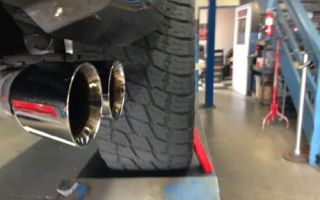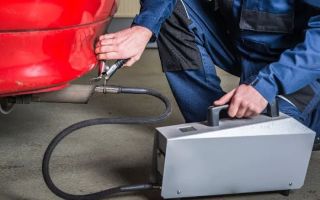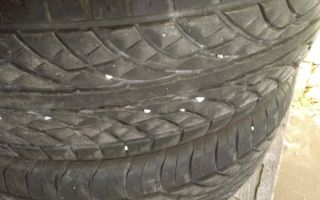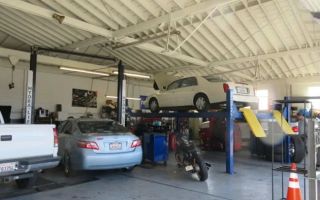When you're driving along the highway or through a quiet country road, the last thing you'd expect is for your vehicle to suddenly stop due to a flat tire. It always seems to happen at the most inconvenient times – maybe on a busy street, during a rainstorm, or far from the nearest repair shop. However, the good news is that fixing a flat tire doesn't have to be a major ordeal. If you find yourself stranded with a flat tire, don’t panic. With a little knowledge and the right tools, you can solve this problem quickly and safely, getting you back on the road in no time.
The first thing you need to do when you realize you have a flat tire is to pull over safely. If you're on a busy road or highway, finding a safe location is your priority. Try to find a flat, stable area away from traffic where you can safely change the tire. If you're driving at night or in low visibility conditions, turn on your hazard lights immediately to alert other drivers to your situation.
Once you're safely stopped, you can assess the situation. Sometimes, a flat tire may not be as flat as it seems. You may simply need to adjust the tire pressure. In this case, checking the air pressure with a tire gauge can be a good first step. If the tire still appears flat, or if it’s not holding air, you’ll need to proceed with changing the tire. Here’s how you can do it:
- Gather the Necessary Tools: Before you begin, make sure you have everything you need. You’ll need a car jack, a lug wrench, a spare tire, and a wheel chock to keep your vehicle from rolling. Some cars also have a tire repair kit, so check your vehicle’s trunk to see if you have one.
- Lift the Vehicle: Start by positioning the car jack under the vehicle's lifting point. You can usually find this information in your car’s manual. Once the jack is securely in place, begin lifting the car until the flat tire is off the ground.
- Loosen the Lug Nuts: Use the lug wrench to loosen the lug nuts on the flat tire. It’s usually best to do this while the tire is still on the ground, as this prevents the tire from spinning. Loosen each lug nut in a star pattern to ensure even pressure when you remove them.
- Remove the Flat Tire: Once the lug nuts are loosened, carefully lift the tire off the vehicle and set it aside. Be sure to keep the lug nuts in a safe place, as you’ll need them for the new tire.
- Install the Spare Tire: Take the spare tire and align it with the wheel bolts. Slide it onto the wheel bolts and push it into place. Once the tire is positioned properly, start threading the lug nuts onto the bolts by hand. Tighten them as much as you can without using the wrench.
- Lower the Vehicle: Use the jack to slowly lower the vehicle back to the ground. Once the car is back on the ground, use the lug wrench to tighten the lug nuts completely. Be sure to tighten them in a star pattern again to ensure an even fit.
- Check the Tire Pressure: After changing the tire, make sure the spare tire is properly inflated. If you don’t have a pressure gauge, many service stations offer air pumps with built-in gauges to check your tire pressure.
If you're unable to change the tire yourself, or if you don’t have the necessary tools, don’t hesitate to call for roadside assistance. Many insurance companies, car manufacturers, and even independent services offer emergency roadside assistance for situations like this. Roadside assistance will send a professional to help you change the tire or tow your vehicle to a nearby repair shop.
In cases where a quick tire change is not possible, consider using a temporary tire repair kit if your vehicle has one. These kits can be used to seal punctures and allow you to drive short distances until you can reach a repair facility. Keep in mind, though, that these kits are only a temporary fix and shouldn’t be relied upon for long-term solutions.
Sometimes, the flat tire may be caused by a bigger issue, like a valve stem problem or a deeper puncture that can’t be easily fixed on the road. If you suspect that the damage is more serious than just a simple puncture, it’s advisable to have the tire professionally repaired or replaced. It’s also important to regularly check the condition of your tires to ensure they are properly inflated and free from any damage that might leave you stranded.
As an additional precaution, you can reduce the risk of flat tires by maintaining your tires properly. Make sure they are inflated to the recommended pressure, rotate them regularly to ensure even wear, and inspect them frequently for signs of damage, like cracks or bulges. Keeping your tires in good shape will help ensure that you don’t face unexpected flat tires while driving.
At the end of the day, a flat tire is a common issue for drivers, but it doesn’t have to be a major hassle. By staying calm, prepared, and equipped with the right tools, you can handle this situation efficiently and get back to your journey in no time. Whether you fix it yourself or call for assistance, the key is being proactive and knowing what steps to take when you find yourself with a flat tire.























